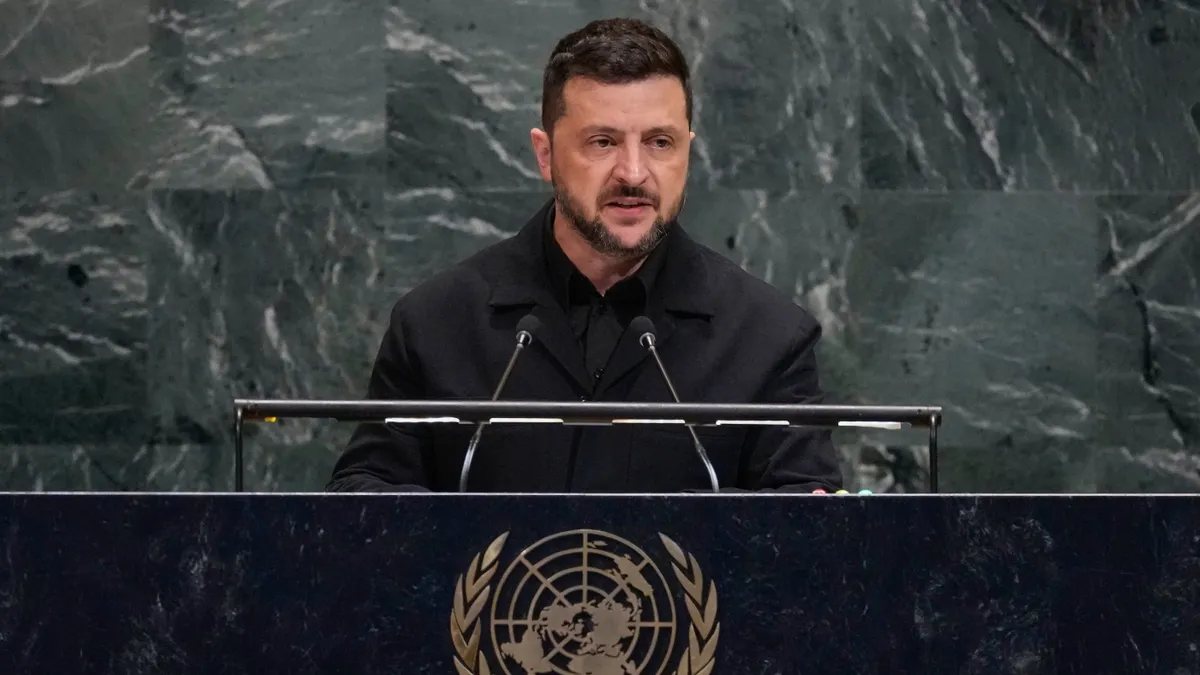
In a powerful address to the U.N. General Assembly on Wednesday, Ukrainian President Volodymyr Zelenskyy raised significant concerns about the emerging threats posed by artificial intelligence-driven warfare. He cautioned world leaders that it is only a matter of time before drones engage in autonomous combat, capable of attacking critical infrastructure and targeting individuals without human intervention. “We are now living through the most destructive arms race in human history because this time, it includes artificial intelligence,” Zelenskyy emphasized.
Zelenskyy's remarks came amid increasing alarm in Europe following recent incursions by Russian drones into several NATO eastern member states. These incidents have sparked fears of a potential regional spillover from Russia’s ongoing, full-scale invasion of Ukraine, which has now lasted over three and a half years. “Ukraine is only the first target, and now Russian drones are already flying across Europe. Russian operations are spreading across countries, and Putin aims to expand this war,” Zelenskyy warned.
Coinciding with Zelenskyy's address, former U.S. President Donald Trump made headlines with a notable shift in his stance regarding the conflict in Ukraine. On his Truth Social platform, Trump stated, “After getting to know and fully understand the Ukraine/Russia military and economic situation, and after seeing the economic trouble it is causing Russia, I believe Ukraine, with the support of the European Union, is in a position to fight and WIN all of Ukraine back in its original form.” This statement marks a reversal from his previous position, which suggested that Ukraine might need to cede some territory, including Crimea, to Moscow to resolve the conflict.
Trump met with Zelenskyy on the sidelines of the U.N. General Assembly on Tuesday, where the two leaders discussed the ongoing war. When asked by a reporter whether NATO members should shoot down Russian aircraft that violate their airspace, Trump responded affirmatively, stating, “Yes, I do.” This interaction highlights the evolving dynamics of international support for Ukraine amidst a complex geopolitical landscape.
This is a developing story and updates may follow as the situation evolves. The implications of Zelenskyy's warnings about AI in warfare and shifts in U.S. policy on Ukraine are critical for understanding the future of global security and the ongoing conflict in Eastern Europe.